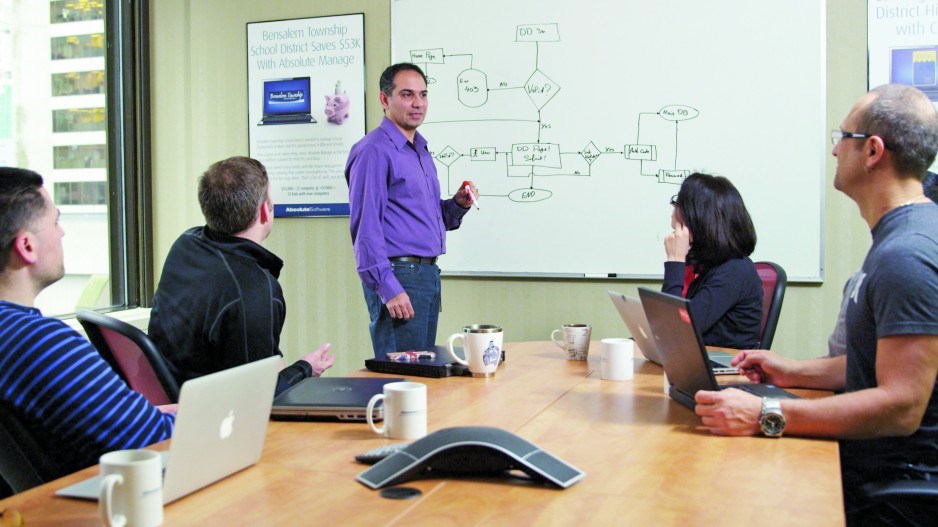Take a look at smartphones developed by Google (Nasdaq:GOOG) or Apple (Nasdaq:AAPL) and you’ll encounter almost complete market dominance.
“Neither one of them invented smartphones,” said Alexander Fernandes.
“But where’s PalmPilot, where’s BlackBerry (TSX:BB), where’s Nokia (NYSE:NOK) these days? They’ve fallen by the wayside because they failed to innovate.”
The CEO of Avigilon Corp. (TSX:AVO) said the rapid changes in the tech sector means budgeting for research and development (R&D) requires a deft touch. In 2012, the Vancouver-based high-definition surveillance camera company’s gross R&D expenses amounted to $6.4 million. Those costs jumped 83% to $11.7 million the following year.
And by the second quarter of 2014, Avigilon’s R&D budget grew to $6.4 million – the same amount it spent throughout all of 2012.
“There’s this tension always of short-term profit versus long-term growth, and sustainability and competitiveness,” Fernandes said. “Companies who really try to take too much profit in the short term enjoy the benefit but in the long term can set themselves up for a failure because what you don’t want is…your competitors catching up or leapfrogging you.”
Absolute Software (TSX:ABT) CFO Errol Olsen said the recent advent of mobile devices – be they smartphones, tablets or laptops – has had the biggest impact on his company’s R&D budget over the past two decades.
When the iPhone was released in the summer of 2007, the Vancouver-based security software company had an R&D budget of $3.3 million for the entire year.
By 2014, the budget had grown 233% to $11 million.
“The two areas of technology which are probably the fastest moving right now are mobility and security,” Olsen said.
“We sit at the intersection of those two, so for us innovation is critical because we’re in such a fast-moving area of technology.”
He added that the goal for Absolute, which employs about 100 developers locally and another 50 worldwide, is to add $1 million to its R&D budget each year.
But the advent of mobile technologies means qualified developers versed in iOS (used by Apple) and Android (used by Google) that can work in R&D are “tough to come by,” according to Olsen.
“In the Vancouver marketplace, it’s absolutely extremely competitive in our ability to bring in top talent,” he said.
“When we look at talent, we first try to find it in Canada because of the tax credits.”
Both Absolute and Avigilon qualify for certain exemptions in their respective R&D budgets under Ottawa’s Scientific Research and Experimental Development investment tax credits program.
The program provided both companies about $2.5 million in tax credits last year.
“It’s absolutely an incentive,” Olsen said. “When we combine the [low Canadian] dollar and the tax credits, hiring in Vancouver makes a lot of sense to us.”




